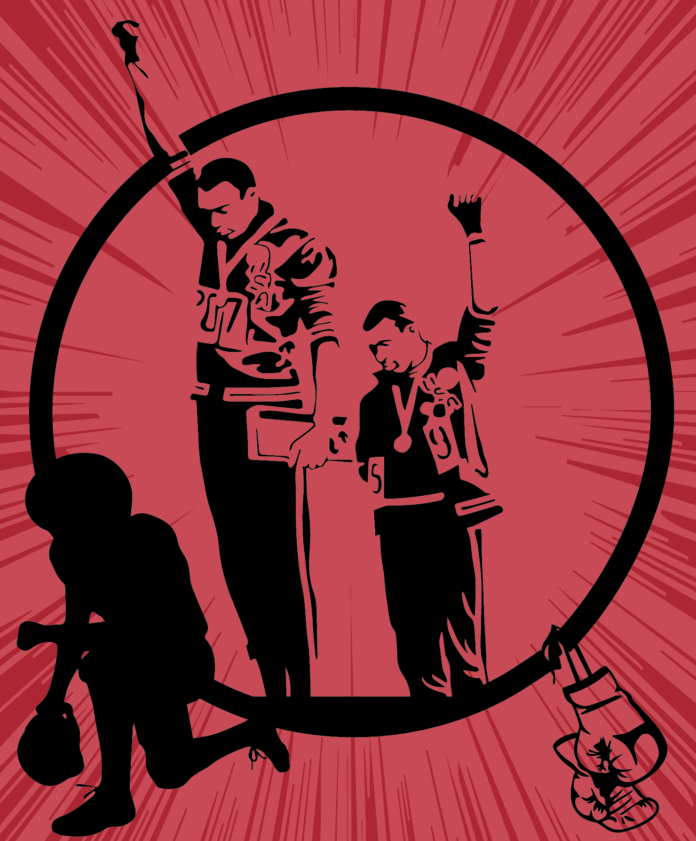The Phi Alpha Theta History Honorary Society and the History Department co-hosted an event on Feb. 25 called “When Black Athletes Protest.”
Panelists spoke about the history of protests and how Black athletes advocate for racial justice and inclusion inside and outside of sports.
This event featured different student presenters who spoke about the evolution of Black protesting, while discussing both historical and modern examples of protesting, with an emphasis on athletes.
Additionally, Melissa Ford, an assistant professor in the History Department, who helped facilitate the event, taught a class in fall 2020 called “the history of pop culture.” In this class there was a focus on pop culture that takes focus on contributions from people of African descent in the United States.
A conversation was then started about Black athletes and this discussion following the Black Lives Matter protest made some of these discussions difficult to have.
“It was really actually quite hard to teach a class on pop culture as everything was changing immediately,” Ford said. “But it really helped to kind of drive the importance of understanding the history of Black athletes protesting.”
After receiving students’ essays on Black history and having these discussions in her class, Ford felt that students would be interested in furthering the discussion of the topics learned in class by having a panel discussion about Black athletes protesting.
Ford also spoke of the roles and responsibilities of students when discussing protests related to racial justice and mentioned ways in which students can and need to get involved with these discussions to further change.
“This is a responsibility for everyone, and specifically the students who don’t feel that they’re affected,” Ford said. “We have to work at all levels on this, not just personally, but in our interpersonal communications and systems.”
Everyone is encouraged to be an active participant in anti-racism movements, and panel discussions similar to Black athletes protest. These are important places where Black voices can be heard.
The panel of students were all volunteers. Ford wanted to include as many as possible, but Zoom creates a barrier for many students which limited participation. To help boost conversation, Alan Levy, another professor in the History Department, also spoke at the event.
Levy, who is also an author, talked about the early Black players in professional football. Ford paraphrases some of the important talking points this discussion brought up.
“[In regards to professional sports] . . . we see all these amazing athletes who are fundamentally changing the way we think about sports and race,” Ford said.
The discussion was interrupted by the second Zoom bombing during Slippery Rock University’s Black History Month events. The first bombing took place the night of Feb. 13.
Ford spoke about how the Zoom bombing effected the remainder of the evening.
“We were all in shock when the bombing started,” said Ford. “I just tried to ignore it, because any reaction is exactly what they want, and there needs to be a reaction absolutely, but I needed time to process, so we kind of forged forward.”
This disruption did not to take away from the importance of this discussion. The event continued after the attack.
Dan Bauer, dean of the College of Liberal Arts, spoke at the end of the event, reminding everyone in attendance why these events are so important to talk about. Ford paraphrased what Bauer said.
“He said that this was an example, we got zoom bombed because people don’t want this history to be told and that makes it so much more important.”
While Black History Month 2021 has concluded, it is important to remember the lessons and topics that have been discussed make in impact on the future. Conversation should go beyond Black History Month to talk about inequalities.
Ford wants people to know that the change starts with all of us.
“I’m formally inviting you to get active, start questioning those you know uses slurs, go to events,” Ford said. “Take a Black history class, take a history class for any marginalized people.
“Take something out of your major that will challenge the way you think.”









